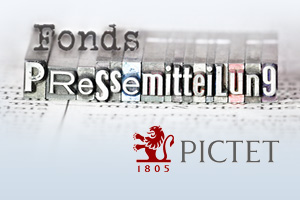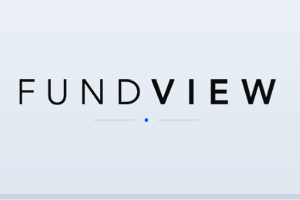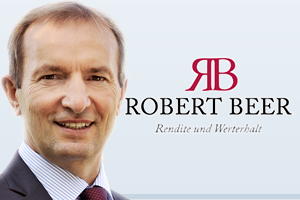Pictet | Frankfurt, 22.01.2015.
Sehr geehrte Damen und Herren, wir freuen uns, Ihnen anbei eine aktuelle Flashnote von Mary-Therese Barton, Senior Investment Manager bei Pictet Asset Management, zur brasilianischen Volkswirtschaft und den lokalen Anleihemärkten mit dem Titel “Dispatches from Brazil – Change is in the air” zuzusenden. Bei Rückfragen stehen wir Ihnen gerne zur Verfügung.
Mit besten Grüßen,
Oliver MOELLER, Head of Communication Germany & Austria, Tel. +49 69 79 5009 30, omoeller@pictet.com
Dispatches from Brazil: Change is in the air
Mary-Therese Barton, Senior Investment
Manager, Pictet Asset Management
• With Levy as finance minister, Brazil gets serious about cutting public spending
• Economic slowdown may slow the pace of central bank interest rate hikes
• Brazilian real to remain under pressure
Brazil has just unveiled new plans to restore economic growth and boost investor confidence. But will President Dilma Rousseff and her economic team succeed in turning around the Latin American giant’s fortunes? Mary-Therese Barton, senior investment manager of emerging market debt, went on an extensive field trip to the country to find out. As I landed in Rio de Janeiro and kicked off a busy day packed with various meetings, I was immediately struck by the optimism of local people over how Rousseff and her financial tsars can pull Latin America’s largest economy out of a four-year slump, in contrast to the rampant pessimism among foreign investors.
There is no denying that the current situation in Brazil is dire and foreign investors don’t like it. There is a long list of negatives: the economy is flirting with recession, inflation is at the top end of tolerance levels and prices for iron ore, soybeans and other key commodity exports are falling. At least one international ratings agency has hinted at a credit downgrade of the country, while a multibillion-dollar graft scandal engulfing state-run oil giant Petrobras is threatening to further undermine investor confidence.
However, being in the country and meeting locals, I felt a real sense of optimism and determination – a strong belief that something needs to be done.
Confidence boost
For its part, the administration is clearly looking to jolt investor confidence. It has already announced cuts in subsidies to public banks, higher interest rates at state development bank BNDES and limits to pension and unemployment benefits to shore up its depleted public finances. But more importantly in my view, the government is taking a huge step in the right direction by appointing Joaquim Levy as Finance Minister. A Chicagoeducated orthodox economist and banker, Levy has also worked at the IMF and European Central Bank and is known for slashing spending during his 2003-2006 stint at the treasury.
Officials and bankers I met were almost unanimous in saying that reining in public spending is the most important task for Brazil in the next four years and that Levy is the one for the job. According to one official I met, Levy “underpromises and overdelivers” – this is what you need when you must make difficult budget cuts and tax hikes. Many investors are however doubtful that Levy will have the autonomy to implement the full set of changes to improve fiscal finances because Rousseff is famously interventionist (she has apparently already told the new planning minister Nelson Barbosa to change his stance on modifying the minimum wage adjustment formula given the promises she has made to union leaders).
Yet many people I spoke to believe the President will leave Levy alone and let him get on with the job, because she has no other choice. One official observed: “I don’t think she has changed, but she is certainly adapting.” While Levy’s promise of improving the fiscal balance by 1.5 percentage points looks ambitious, the central bank has reaffirmed its commitment to keeping inflation within target1 over the next two to three years. Therefore, I think investors
are willing to give Levy the benefit of the doubt, at least for the next few months.
Collateral damage
The inevitable collateral damage from fiscal adjustment is an economic slowdown. Growth is likely to disappoint further – Pictet Asset Management’s emerging debt team thinks the economy will barely grow this year, after an estimated 0.1 per cent expansion in 2014; unemployment is also likely to rise. High inflationary pressures will add to Brazil’s problems. The market has priced in expectations for interest rate hikes of at least a further 75 basis points, but we see a possibility the central bank may not tighten as much given the adverse impact higher borrowing costs have on the economy. The central bank has already raised benchmark rates to a four-year high of 12.25 per cent to keep inflation well below the maximum ceiling of 6.5 per cent and eventually closer to the central target.
Finance officials and executives I met agreed that interest rates are going to rise this year, but they were divided on the scale of tightening (some expected the benchmark selic lending rate would reach 13 per cent). For all this, it would be wrong to dismiss Brazilian bond markets in 2015. By the end of the year, the central bank may focus more on supporting growth by cutting interest rates to shore up the economy. We believe this should make Brazilian bonds an interesting investment opportunity with benefits from falling yields. Longer-term, this more positive scenario for economic policy may already be partly discounted by the market given that the two to six-year segment of the government bond yield curve is inverted by around 30 basis points, but we think there’s room for the gap to widen further if the Levy-led team surprises on the upside.
As for the currency, we expect the real to remain under pressure – it could fall further to the USD3 mark sometime this year, which is in line with interest rate differentials suggested by the forward currency market. The real was one of the worst-performing emerging market currencies after the Russian rouble last year, falling more than 11 per cent against the USD. Yet, on our fair value models, the real is still overvalued by 10.5 per cent in nominal trade-weighted terms, suggesting further depreciation.
Open for business
I also sensed that economic and political elites are trying to be more businessfriendly. Not least because we were warmly welcomed into Congress by a senior coalition party official on one of the busiest days in their calendar, one which included a Petrobras hearing (We were also taken into the Chamber and then ushered into the private senator common room to be offered mint tea and rich tea biscuits). Everyone I met was keen to stress that Brazil is open for business, and I can’t remember how many times I heard the word “fiscal adjustment”.
So the message is clear: change is in the air – however short term it may prove to be. Although the confidence boost epitomised by the government’s macroeconomic policy has emerged out of political necessity, Rousseff has so far moved in the
right direction, particularly with the appointment of Levy as finance minister. Is the optimism surrounding Levy a bit excessive? Possibly. But with foreign investors almost universally pessimistic, we may get a pleasant surprise.
WHY PICTET ASSET MANAGEMENT FOR EMERGING MARKET DEBT
• Experience: With an average of 15 years experience in fixed income investing, our senior portfolio managers have witnessed several market cycles. This means they possess the requisite perspective and expertise to both identify attractive long-term investment opportunities and invest confidently through bouts of market volatility.
• Global research expertise: Global, proprietary, fundamental research is at the heart of our investment process. Our emerging market debt managers are supported by a well-resourced investment group that includes credit specialists, economists, and quantitative analysts.
• Rigorous risk control: We monitor and control risk on numerous levels. Portfolio managers and analysts carry out daily risk assessments; this risk control process is augmented by PAM’s fixed income risk team, which monitors portfolios independently from the investment group using Risk Metrics, a sophisticated risk management system. PAM’s group risk control team provides an additional layer of risk monitoring.




